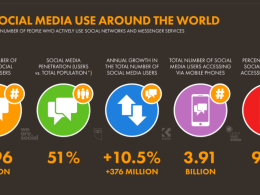Have you ever felt anxiety before going on holiday? Pre-vacation anxiety refers to the heightened stress, worry, and unease that individuals commonly experience as they approach their planned time off. It arises from a combination of factors, including the pressure to complete work tasks before leaving, concerns about the workload upon return, and the desire to make the most of the upcoming vacation.
Employee mental well-being is of great importance to both individuals and organizations and therefore should play a key role in their employee benefits program. Employees with optimal mental well-being are likely to be engaged, productive, and satisfied with their work. In contrast, neglecting mental health can result in negative outcomes, such as reduced productivity, increased absenteeism, and higher turnover rates. Recognizing and addressing employee mental well-being, including pre-vacation anxiety, is essential for fostering a positive work culture that promotes open communication, empathy, and work-life balance. Moreover, prioritizing mental well-being enhances productivity, creativity, and decision-making abilities. By supporting employees’ mental health through an employee well-being platform, such as ifeel, organizations can prevent burnout, encourage long-term retention, and cultivate loyalty, trust, and commitment among their workforce.
Understanding Pre-Vacation Anxiety
Pre-vacation anxiety can cast a shadow over the excitement of upcoming time off. As the departure date draws near, individuals often find themselves fighting stress, worry, and unease. Various causes and triggers contribute to this phenomenon, creating a challenging mental landscape for employees. Understanding these factors is essential for individuals and organizations to recognize and address pre-vacation anxiety effectively.
Causes and Triggers of Pre-Vacation Anxiety
Workload and Deadlines: The pressure to complete pending tasks and meet deadlines before leaving for vacation is a primary cause of pre-vacation anxiety. The fear of leaving unfinished work behind creates a sense of urgency and stress.
Workload Upon Return: Concerns about the pile-up of work awaiting employees upon their return can contribute to pre-vacation anxiety. The thought of catching up on emails, dealing with a backlog of tasks, and managing the overall workload can be overwhelming.
Perfectionism and High Expectations: Employees who hold themselves to high standards and strive for perfection may experience anxiety related to taking time off. They may worry about meeting their own expectations, maintaining productivity, or feeling guilty for taking a break.
Lack of Preparation: Insufficient time to plan and prepare for a vacation can also trigger anxiety. The logistics of organizing time off, making travel arrangements, and ensuring a smooth transition of responsibilities can leave employees feeling overwhelmed.
The Impact of Pre-Vacation Anxiety on Employee Mental Well-being
Pre-vacation anxiety can profoundly affect employees’ mental well-being, affecting various aspects of their lives and work performance. Understanding these impacts is crucial for organizations to prioritize employee support and create strategies to mitigate the negative consequences. Here are the critical effects of pre-vacation anxiety on employee mental well-being:
- Increased Stress Levels
Pre-vacation anxiety inherently involves heightened stress levels for employees. The pressure to complete tasks before leaving, concerns about workload upon return, and the overall anticipation of the vacation can significantly increase stress. This sustained stress can impact employees’ overall mental and physical health, leading to fatigue, irritability, and difficulty coping with everyday challenges.
- Decreased Productivity and Engagement
Pre-vacation anxiety can have a direct negative impact on employee productivity and engagement. When employees are consumed by worry and distraction related to pending tasks and the upcoming vacation, their ability to focus and perform at their best diminishes. This can decrease productivity, missed deadlines, and subpar work quality. Additionally, employees may experience a decline in their motivation and engagement levels, as their mental energy is divided between work-related responsibilities and vacation anticipation.
- Negative Effects on Work-Life Balance
Pre-vacation anxiety can disrupt the delicate balance between work and personal life, impacting employees’ overall well-being. Employees may struggle to disconnect from work mentally and emotionally, even during their time off. The lingering worry about work and the fear of missing out on important events or opportunities can hinder their ability to fully relax and enjoy their vacation. This imbalance can contribute to guilt, dissatisfaction, and an inability to recharge and rejuvenate fully.
Furthermore, the adverse effects of pre-vacation anxiety can extend beyond the vacation period itself. Employees may experience prolonged stress and difficulty transitioning back into work mode after their time off. The pressure to catch up on missed tasks and the anxiety of returning to a heavy workload can further contribute to mental exhaustion and reduced well-being.
Addressing mental well-being in organizations
Organizations can implement various solutions and preventative measures to promote employee well-being and address pre-vacation anxiety, such as implementing mental well-being solutions, creating a supportive work environment through open communication, work-life balance promotion, and providing resources and support. Employee assistance programs, stress management techniques, and relaxation strategies can help employees cope with anxiety.









